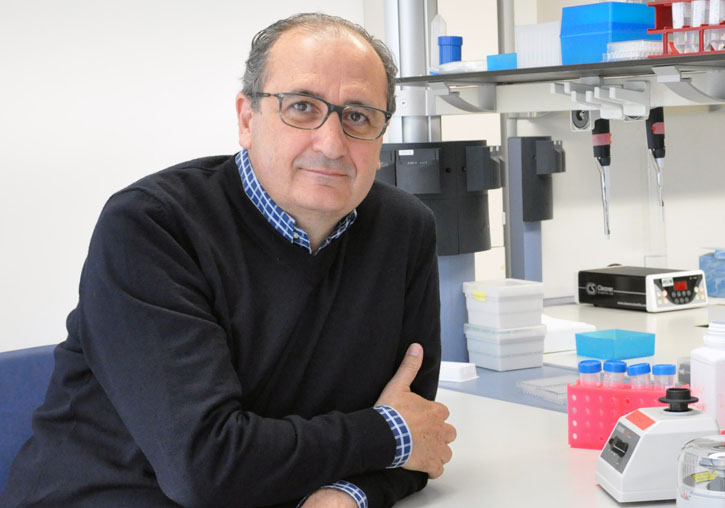Users
Social media
- More details here...
- Address
Parc Científic de la Universitat de València C/
Catedrático Agustín Escardino, 9
46980 Paterna (Valencia) Spain - Email:
iu.i2sysbio@uv.es - Phone:
(+34) 963544810
- Address
Links
FRAGILTEC starts, a project that improves early detection, diagnosis and monitoring of Frailty Syndrome

Investigation
FRAGILTEC starts, a project that improves early detection, diagnosis and monitoring of Frailty Syndrome

The University of Valencia (UV) and the Foundation for the Promotion of Health and Biomedical Research of the Valencian Community (Fisabio), an organization dependent on the Department of Universal Health and Public Health, among others, have initiated the FRAGILTEC project, a proposal to develop a high-performance genotypic screening technology of the genome and microbiome for the detection early diagnosis and monitoring of Frailty Syndrome.
This public-private collaboration project – in which the Autonomous University of Madrid (UAM) also participates and which has received 1,113,066.55 euros for its execution during its three years – is framed in the strategic line of research in geroscience, gerotherapy and healthy aging of the State Research Agency.
The project will carry out a procedure for the systemic investigation of human genes and microorganisms involved in Frailty Syndrome, as well as a new technology based on DNA chips for the early detection of this condition. DNA chips are used as techniques to analyze the expression of genes, since thousands of them can be monitored simultaneously.
The proposal is led by Andrés Moya (professor of Genetics at the UV and researcher at Fisabio, UV, CSIC and CIBERESP), and by Fernando Rodríguez Artalejo (Cardiovascular, Nutritional and Aging Epidemiology Group at the UAM and researcher at CIBERESP and IMDEA-Food). It also has the collaboration of the biotechnology company Sabartech, located in the Science Park of the UV and directed by co-founders Javier Sarasqueta (general director) and Javier Escobar (scientific director).
Andrés Moya, also a researcher in the Genomics and Health Area of Fisabio, and coordinator of the project, explains: “The FRAGILTEC consortium has brought together the strengths and talents of the academic, clinical and business fields to make the most avant-garde scientific and technical advances and thus put them at the service of society. We are convinced that it will have a significant impact on all stakeholders in our value chain.”
Frailty Syndrome is associated with aging and is characterized by the loss of reserves in numerous organs and systems, which increases the susceptibility of the individual to external and internal stressors. It is a state that precedes disability, and its early detection and prevention are crucial to avoid harmful clinical consequences in older people. The technical proposal involves the combination of omics sciences, bioinformatics and information and communication technologies to develop a rapid method and effective early detection.
The novelty of the proposal consists of combining two DNA sequencing technologies. “Our proposal to generate the data set resulting from the combination of these technologies would solve the problems described by both technologies, implementing a genetic imputation system and a much more precise and robust DNA chip-based genotyping to cover a greater proportion of hot spots throughout the entire genome. This will allow the development of a quick and low-cost solution for mass screening of fragility,” explains Vicente Pérez Brocal, from Fisabio's Simbiosis Group.
In addition, a new multi-scalar Frailty Risk Calculator will be created that provides information (genetic, microbiota, anthropometric and clinical) to an algorithm. This will provide doctors (mainly gerontologists, but also those in primary care) with an easy-to-access and use tool to assess the risk of frailty in patients and family members.
“There is, therefore, the need to improve the health of the elderly population in terms of independence and functional autonomy, and not focus on longevity or increased life expectancy," comments Susana Ruiz Ruiz, from the Fisabio Simbiosis Group.
The project is financed by the Ministry of Science and Innovation, the State Research Agency and the European Union through the NextGeneration funds and the Recovery, Transformation and Resilience Plan, within the aid for projects in strategic lines, of the state scientific, technical and innovation research plan 2021-2023, within the framework of the recovery, transformation and resilience plan, corresponding call in 2022.


